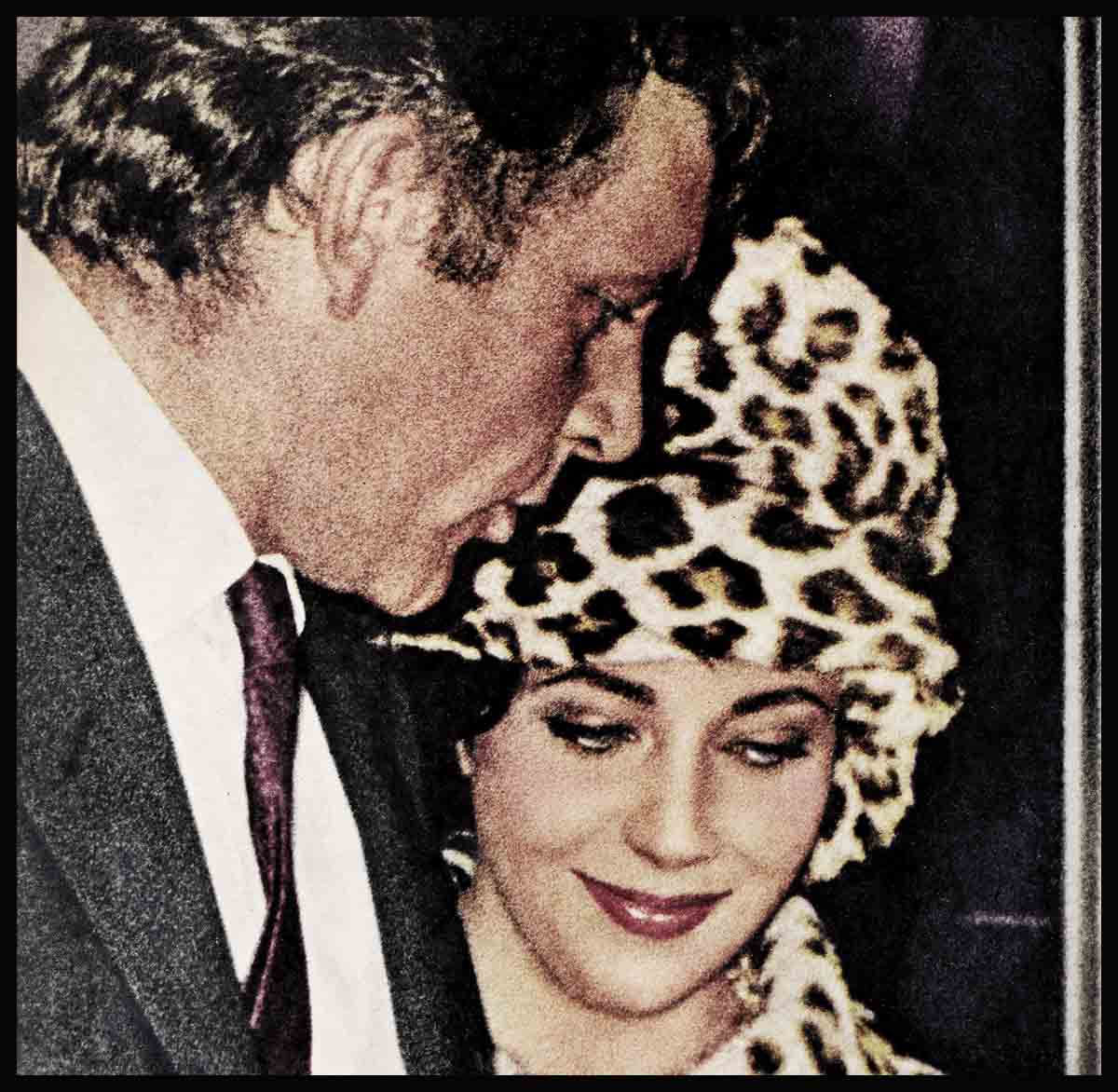
The Terrible Truth About Elizabeth Taylor As A Mother
The case against Elizabeth Taylor as a mother is devastating. A mere scanning of Italian and American newspapers reveals a pattern of carelessness towards her children—a carelessness bordering on unconcern. It’s not so much that her children might actually see such disturbing photographs as the ones snapped of their mother kissing Richard Burton offstage at the “Cleopatra” set, it’s rather that the parents of some of their schoolmates are bound to notice such pictures, and some of them will talk about it and their own children will hear them. What happens next is almost inevitable—children do gossip and tease. And Michael and Christopher Wilding and Liza Todd Fisher become innocent victims of their mother’s indiscretions.

What Miss Taylor’s children actually did see, of course, must have confused and disturbed them. One day Eddie Fisher was there, the next day he wasn’t. They hardly had time to miss him because things were so exciting. Somebody whom their mother worked with, a man named Richard Burton, came driving up to their house. When the door of the villa was opened to him, some men with cameras tried to follow him in. Mr. Burton’s chauffeur grabbed a broom and chased the men away. Then Mr. Burton ran out of the house, and Mama, looking very pretty in a new spring suit, pulled Chris and Mike and Liza out of the villa after her. (Maria had to stay home because she was too little.) They all climbed into the back seat of the car next to Mr. Burton and away it went. The men with the cameras—some on motor scooters and some in cars—sped after them. It was like a game of cops and robbers—only scarier because it was happening to them. The chauffeur zoomed very fast up and down back roads, and soon they lost the guys who were after them. When they got to Torvainica they ate at a place called Corsetti’s. What a meal! Seafood cocktail, lobster, salad, potatoes and a fancy dessert made of ice cream with fruit on top and poured over it was something very delicious called “chartreuse liqueur.”

But all of a sudden some of the men with cameras showed up again, and Mr. Burton drove away with another man in a little car, which the children escaped with Mama in the big car. Again it was exciting, except they hadn’t quite finished their dessert.
Actually, they didn’t get to see much of Mama for many days. She was off working all day, and at night, they’d just get a quick glimpse of her as she left quickly to go some place. One day she did stay home with them all day, and she played with them, too—except she seemed kind of jumpy ind kept rushing back into the house every time the telephone rang.

She was happy, very happy the day they went to visit her on the set, and they all ate lunch with Mr. Burton. But after lunch Mama and Mr. Burton climbed into a big car and drove away. Michael, Chris and Liza went home with their governess. No, this time they didn’t get to go with Mama and “Uncle Dick” (that’s what Mama had said to call him). Oh, they liked Uncle Dick—one time Liza had even kissed him on both cheeks. That was the day Liz was before the cameras and they watched on the sidelines. Yes, they liked him all right, except for one thing: They seldom saw him.
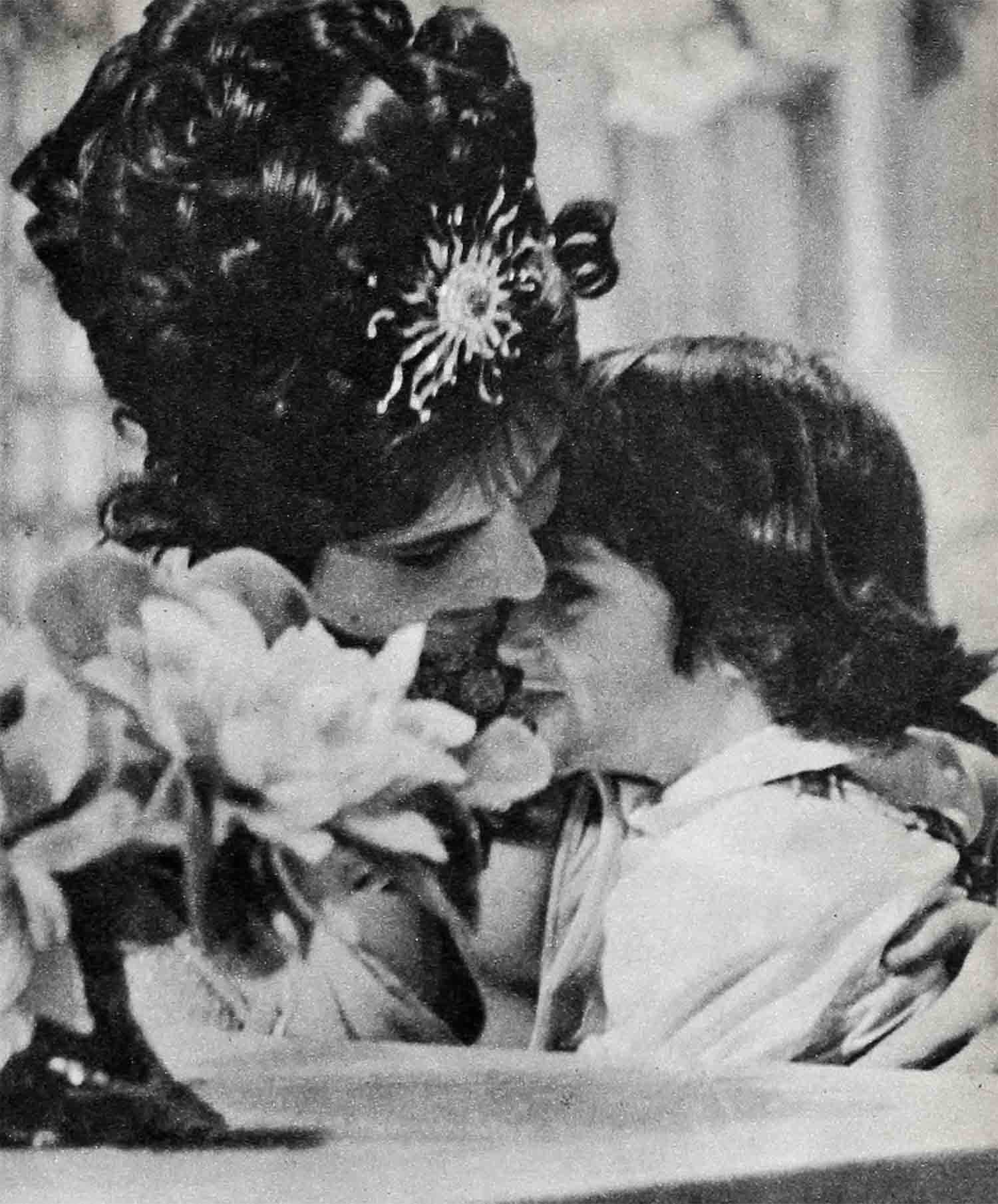

It’s pretty certain that Liz’ children did not see the statement their mother gave to the press. Said she: “I have decided not to marry Richard Burton. . . . My children need a father . . . I need a husband.” And it’s very doubtful that they heard the comment of Dr. Vincenze Bilotta, a physician at Rome’s Salvator Mundi Hospital. Dr. Bilotta, after treating Liz for a slight injury to her nose said, “A normal person . . . wouldn’t even have worried about the injury.” It’s even questionable whether they heard the barrage of stones on the villa rooftop at 3 A.M. the morning the strange men with cameras tried to wake them up so they could take some more pictures.

But it is a sad and undeniable fact that the children definitely did not see their mother at Easter. Mamma and Uncle Dick had gone off to Porto Santo Stefano for three days. One newspaper reported, “Since last Friday, Miss Taylor’s children have been waiting in Rome under the care of their hired nurse to wish their mother a happy Easter.” The children—even fifteen-month-old Maria, rolled Easter eggs on the lawn—but Mamma wasn’t there. Eddie wasn’t there. Where was he, they wondered?
Mamma returned from her Easter rendezvous. But even when she was with the children, they never knew when she’d take off again. As the New York Journal-American reported shortly after she returned from her Easter weekend, “Liz had gone sedately to Anzio with her three kids. But she quickly abandoned them to a nurse and she and Mr. Burton went on a tour of the multi-million-dollar set representing Cleopatra’s palace in Alexandria. Then they cuddled in an intimate trattoria for lunch.”

This was the pattern of Miss Taylor’s actions during this entire period—a carelessness bordering on unconcern. But the reactions of the world to what she was doing to her children—and to the moral standards that society respects—are reflected by what appeared in the worldwide press.
Il Tempo, one of Rome’s two large conservative newspapers, suggested Italy should consider Miss Taylor “persona non grata,” and assailed her as an “intemperate vamp who destroys families and devours husbands. . . .”
Ed Sullivan, whose daughter had been a bridesmaid at Liz’ marriage to Nicky Hilton, stated in his column in The New York Daily News: “You can only trust that youngsters will not be persuaded that the sanctity of marriage has been invalidated by the appalling example of Mrs. Taylor-Fisher and married-man Burton. . .

New York Journal-American columnist George E. Sokolsky warned: “. . . all around there are eight or nine children involved in this exhibitionism . . . sooner or later they will read the press items and see the pictures and they will, if they are properly reared, be ashamed or maybe they will become juvenile delinquents out of hatred and spite, or maybe they will go and do likewise when they grow up, on the principle that it happened to them, why not to me?” (Mr. Sokolsky was including Eddie’s children by Debbie Reynolds and Burton’s two children by Sybil in his “eight or nine children” calculation.)
Society columnist Suzy, in the New York (Sunday) Mirror chimed in: “There must be some kind of self-destructive devil driving this beautiful woman who, with the whole world in her hands, flouts convention, jeopardizes her career, wrecks other people’s lives and flings herself headlong into folly.”
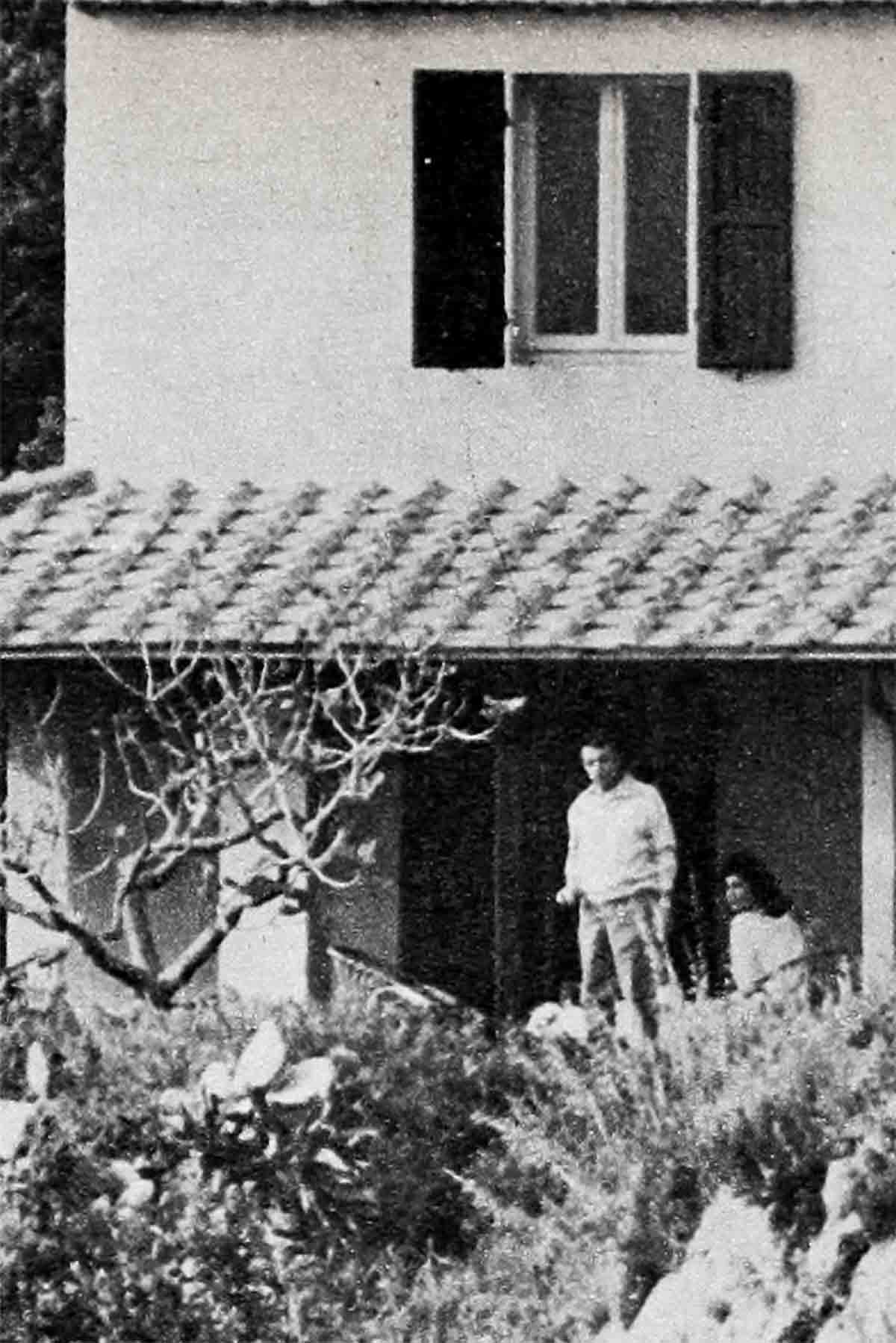
Italian representatives of both Church and State joined in the chorus of condemnation. Egidio Aristo, formerly supervisor of Italy’s film industry, chastised Miss Taylor for both her “amorous and nonamorous conduct.” Pope John stated. “We like to call Rome a Holy City. God forbid it becomes a city of perversion.” The Vatican radio station, obviously referring to the break-up of Miss Taylor’s marriage, struck out at people who consider marriage “a game which they start and interrupt with the capricious make-believe of children. . . .” And in perhaps the most damning blast of all, the Roman Catholic publication Osservatore della Domenica warned Miss Taylor that if she continued to flaunt accepted morality, she might end up in a state of “erotic vagrancy.”
Rome’s afternoon paper Giornale D’Italia summed up public opinion when it stated: “. . . Nobody can forget the fatuity of her heart, which left behind four husbands in the short span of a thirty-year life, and is perhaps about to destroy, to her exclusive personal benefit, the marriage of the Burtons.”

The terrible jokes
Perhaps even more devastating, and certainly indicative of the general disgust everyone felt towards the principal players in these Roman Scandals, were the terrible jokes that began making the rounds.
Bill Slocum in the Mirror: “I can understand Liz’ fondness for him (Burton). He is rich, famous, handsome, married and has two kids—everything Liz wants in a man.”
Robert Sylvester in the News: “New Liz Taylor Cha-Cha. You dance with somebody else’s husband.”
And the following, all recorded by Mirror and Photoplay columnist Walter Winchell: “Hollywood wife’s curse—‘The worst thing I can hope will happen to you is that your husband gets a role in a picture opposite Elizabeth Taylor.’ ” . . . “The headlines saying that Liz and Dickie-doo are not getting married . . . fine time to tell us after the honeymoon.” . . . “ ‘Do you think Burton will marry Liz?’ . . . ‘What! And then have to worry about guys like himself.’ ”
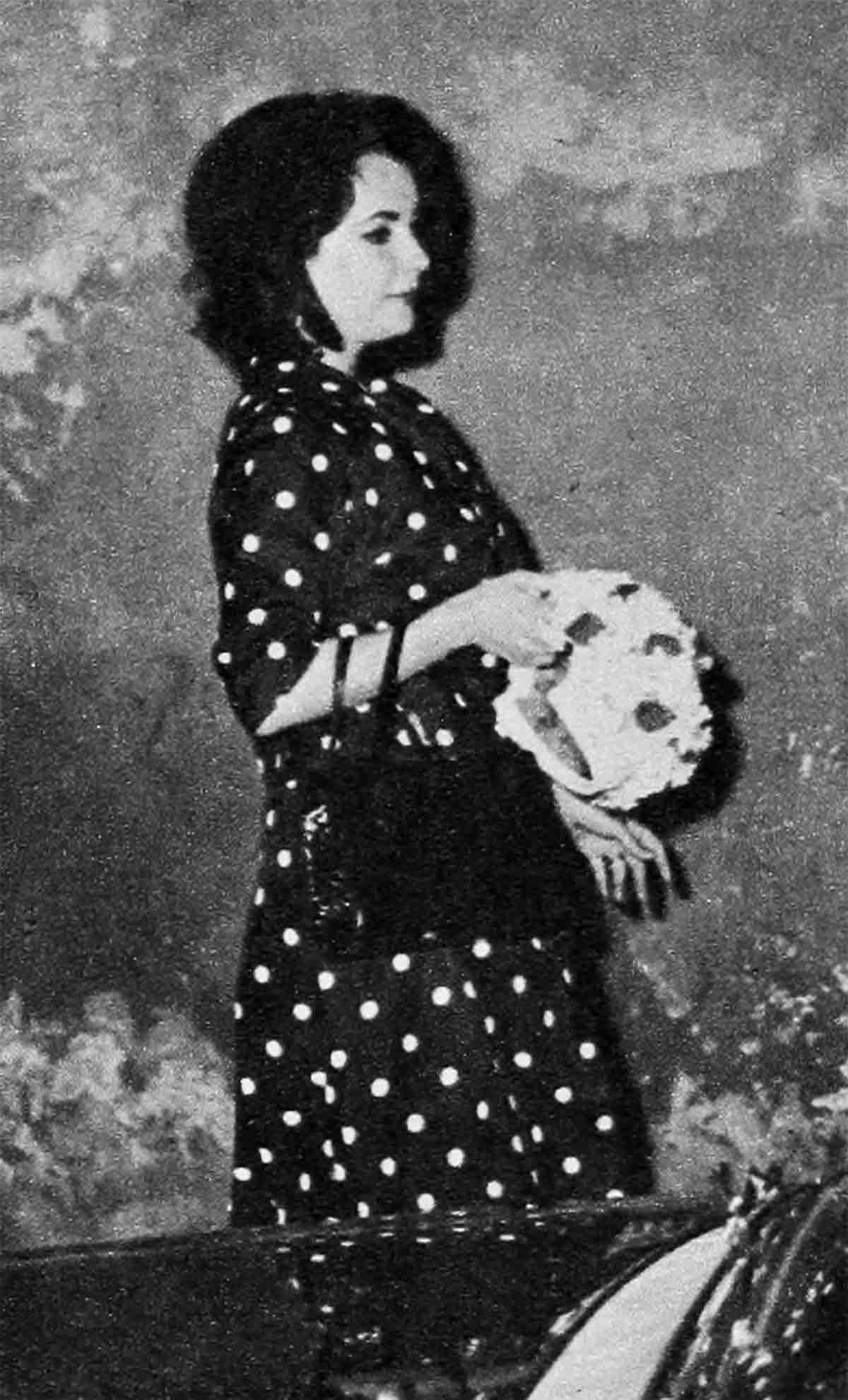
In addition to the devastating gags, editorial, official and religious condemnation, Liz was greeted by boos and hisses in Boston, when she was on-screen briefly in a trailer for this year’s Academy Awards. The catcalls drowned out the sound-track. Outraged letters from people all over the United States are pouring into newspaper offices and Miss Taylor’s studio, most of them asking the question, “Why does she do this to her children?”
Even her close friends, those who have stood by her in the past when public opinion turned against her, are dismayed. They can’t understand why she insists upon flaunting herself in public. Someone recalled the story of how the first J. P. Morgan told off one of his associates for the latter’s “erotic vagrancy.” Morgan’s associate snapped back that Morgan was only angry because the offender was doing out in the open what others did behind closed doors. Morgan replied, “That’s what doors are for!”
All this constitutes prima-facie evidence about Elizabeth Taylor as a mother. As Suzy of the Mirror puts it: “It’s the six children (four of Liz’ and two of Burton’s) who will eventually suffer from this messy business. And I don’t want to hear any more stories about how good a mother Liz really is, either. If you’re really a good mother, you’re a good mother away from home, too.”
And what about that oft-used phrase—that “despite it all, Liz is really a good mother”? To find out, just take a look at the past record.
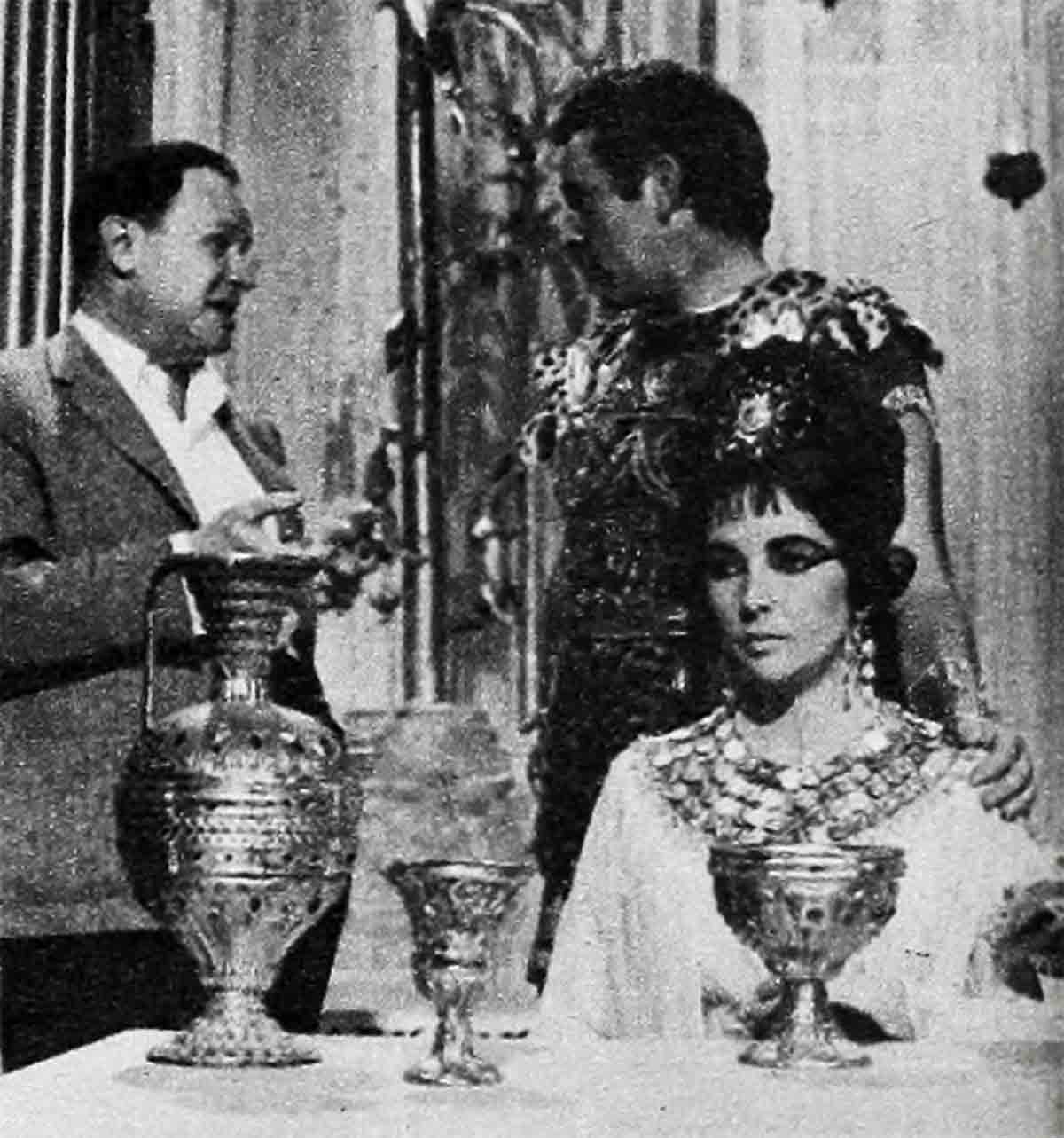
“She’s being a poor mother . . .”
Does a good mother say what Elizabeth Taylor said after she gave birth to Liza (Mike Todd’s daughter)? You remember the circumstances: The delivery had been very difficult.
For fourteen minutes air was forced from a resuscitator into the premature lifeless child’s lungs. When Liza finally gasped her first breath, she weighed less than five pounds and was rushed to an incubator.
What did Miss Taylor say? Well, here’s what Mike Todd told the reporters. “You want to know what my wife’s reaction was? She came out of the anesthetic and the first thing she said to the doctor was, ‘Where’s my diamond ring?’ ”
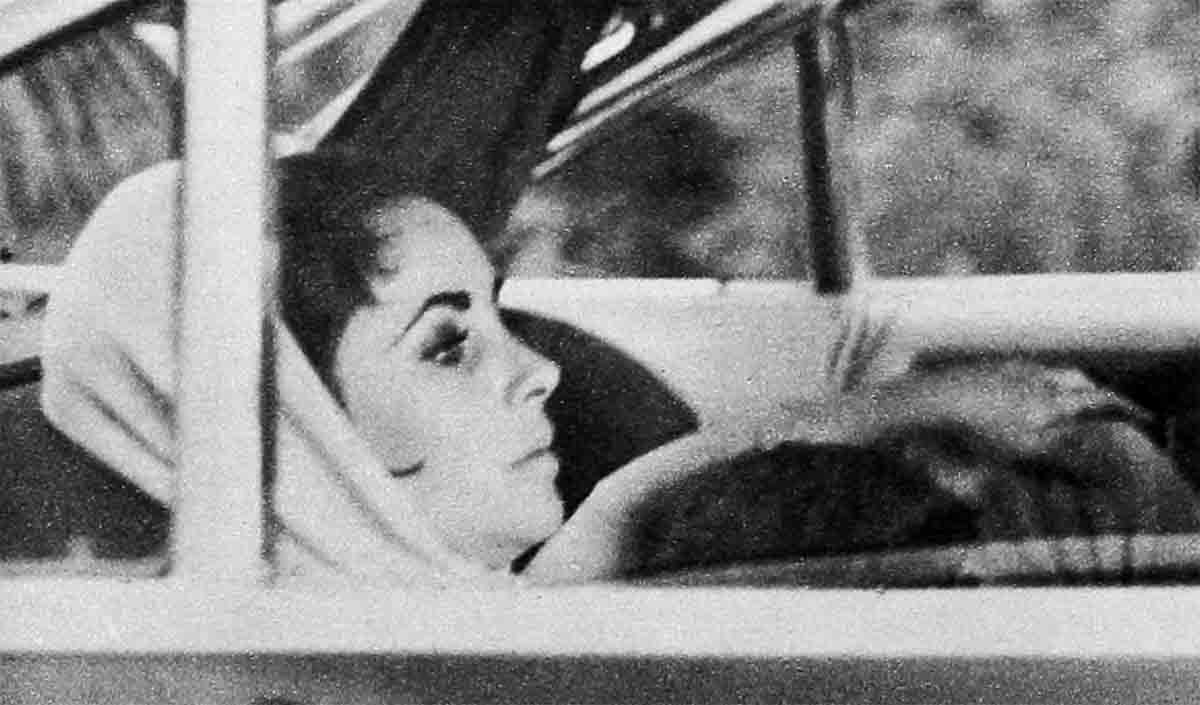
More significant, perhaps, is something Mike told writer Robert J. Levin the afternoon of the day he died. “I’ve been around longer than Liz and I’ve learned a few things,” Mike declared. “Like when she makes mistakes that are not important, I can tell her right off. But if they matter a lot, a guy has to have real patience.
“Being a mother is a woman’s most important job, and you can’t tell her she’s being a poor mother because then she gets hurt, real hurt. . . . I can’t say: ‘Don’t compete with the nurse—you’re the mother. Let the children know you’re the mother.’ I’ve got to keep quiet because Liz has to be the one to discover these things.
“And I can keep quiet because I know she’s smart, and I see her learning all the time.”
But did she ever learn?

The very circumstances by which she was thrown together with Eddie Fisher—that fateful weekend when the two of them just happened to be in New York at the same time—was that not just another example of her failure to be a good mother? For as reporter Florabel Muir of the Sunday News wrote on March 8, 1959: “. . . Liz has never let her children tie her down. She can fly on a trip to London, Moscow, anywhere—and not spend any time worrying about her children. She was heading off on just such an impulsive jaunt when she and Eddie, they insist, met in New York by chance.”
And so Elizabeth and Eddie were married. But how did her sons, Mike and Chris, react to being shunted from Daddy Wilding to Daddy Todd to Daddy Fisher?
A British chauffeur who drove for the Fishers while they were in England making “Suddenly Last Summer,” provides a revealing glimpse as to how the boys acted and felt. It all happened when Mike Wilding and his wife Susan came to the Fishers for a visit so Mike could see his sons again.
“The boys came in, already in their pajamas for the night,” he said. “They didn’t run to their father to be hugged and kissed; they walked over to him and shook hands like little gentlemen. He asked them how they were, they said they were fine, and then nobody seemed to have anything more to talk about. The boys stood around stiff and helpless; they didn’t seem to know what was expected of them and what to do next. I never saw two more uncomfortable children. It was like a meeting of strangers, not of father and sons.”
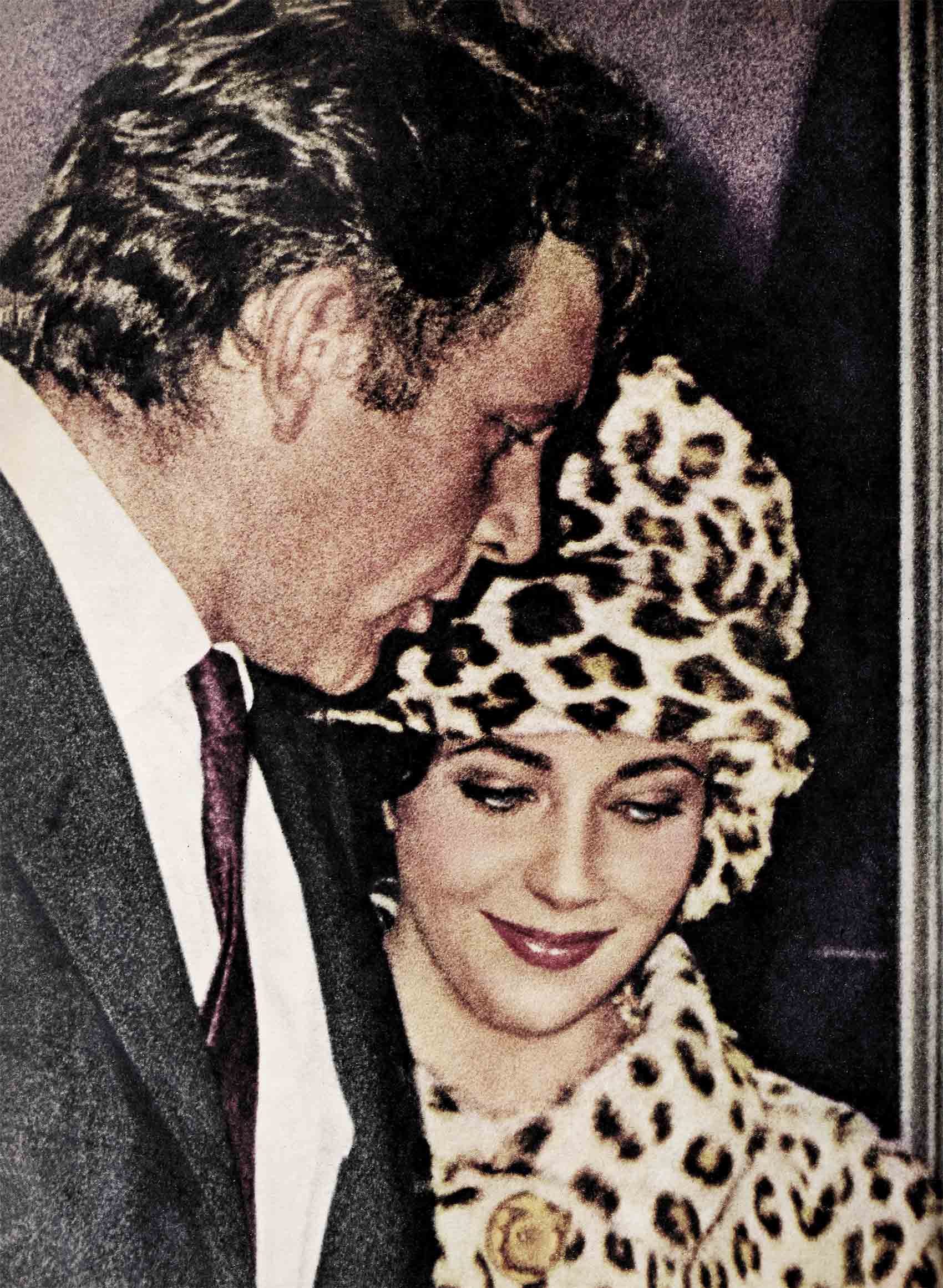
Two other men who worked in the Fishers’ household more recently—Emanuel Feo and Fred Oates, both of whom served separate stints as butlers at Liz’ villa in Rome—provide important information about Elizabeth Taylor as a mother. Feo, in the course of a six-page, by-lined article in Cosmopolitan, lists in great detail the menus the lady of the villa made out for her cats and dogs, but he doesn’t mention her children at all.
He does, however, go on and on about her drinking habits. Each day she went to the studio she always took a case of vodka, plus tonic water and tomato juice, in the trunk of her Cadillac. She would carry a glass of vin rosé to the car. At dinner, even when she ate in the bedroom, there were always four glasses at the right of her plate: one for white and one for red wine, one for champagne and one for water. (It is understandable, then, that when she made her announcement “I’m finished!”—at a time when Richard Burton was temporarily back with his own wife—Liz was holding a glass of vodka in her hand.)
Fred Oates, in his article in July’s Photoplay, makes a point of referring to Miss Taylor’s children, or rather of explaining why he hadn’t mentioned them until almost the end of his revelations. “Anyone who read my memoirs may ask why I never spoke about the three children (Chris, Michael, Liza) of Elizabeth Taylor. The fact is that during my three months’ stay, I saw them so seldom together with their mother, that if I had to express an opinion about her motherly love, based on what I saw, I would have to say that it is a bit lacking.”
Oates went on to say that, in contrast, Eddie spent hours each day playing with the children.
It is a known fact that Eddie tried to give them a father’s love. Eddie was, for the three and a half years of his marriage to Liz, a tremendously stabilizing influence on the children. He adored them all, without favorite, and adopted Liza and gave her his name. He was, in effect, the only father Liza ever knew. To the Wilding boys, he was someone to romp with, someone to love, someone to tell their troubles to. He was someone who was there when they needed him. But for some reason he wasn’t there any more. They had no one to turn to now.
The subject of Liz as a mother has been read into the Congressional Record in a statement by Rep. Iris Blitch, a congresswoman and grandmother, who questioned Liz’ eligibility for “re-entry into this country on the grounds of undesirability.” The public had a right, she contended, to “ostracize those who show no concern for . . . flag or innocent children. . .”
This brings us to the question of Maria, the little crippled orphan girl whom Liz and Eddie adopted. In the same blistering attack by the Vatican newspaper Osservatore della Domenica in which it prophesied that Miss Taylor would end up in “erotic vagrancy,” it asked the questions: “Don’t these institutions think before handing children to somebody? Don’t they request moral references?”
Yet, at this writing Elizabeth still has the child. Maria’s blood-mother is willing that Maria remain with her new mother even though Eddie is now out of the picture.
Nevertheless, the legal situation regarding Maria—and regarding Miss Taylor’s other children as well—isn’t quite as favorable for the actress as it at first might seem. It is a little-known fact that under German law, German judicial authorities could require Miss Taylor to surrender Maria if she and Eddie Fisher are divorced. The usual safeguards required for an adopted child are: The adopting family must have a good home life for the youngster; the prospective parents must be living happily together; the child must be desired for the purpose of completing a family group in which it will be given economic and emotional security, education and loving care. At the present time, Miss Taylor can provide few of these safeguards.
The situation becomes even more complicated in the case of Liza. Although Eddie Fisher has stated that he does not seek custody of any of his wife’s children, he is Liza’s legal father (he legally adopted her). Yet he may change his mind and fight for her custody.
Usually, if there’s a custody fight—and depending upon the state or country in which the action is brought—a mother is given custody of a young child unless it can be proved that she had neglected the child, or that she is morally or mentally unfit to care for her.
The definition of “unfit” varies from court to court and from judge to judge. It’s one thing to accuse someone of something like “erotic vagrancy”; it’s another thing to prove a woman an unfit mother. The final rule of thumb that decides the matter seems to be whether the alleged unfitness is likely to affect the child’s day-today life.
It is conceivable, but far from probable, that Mike Wilding might bring a custody action against Miss Taylor in an attempt to win possession of his sons. But Mr. Wilding has praised his ex-wife as a mother, and, besides, he has just been involved in another divorce action himself and seems in no position to guarantee that he could provide his sons a good home.
The future . . .
Whether or not these custody actions come up in court, the future of Elizabeth Taylor’s children looks black. Dean Kenneth D. Johnson of the New York School of Social Work graphically outlines what children of divorce have to face: “Imagine three hundred thousand children stricken in one year by infantile paralysis. Yet the chances of those children in divorce being crippled emotionally are far greater than the chance for physical crippling by polio.”
Emotional crippling is far more severe than the physical crippling little Maria has undergone—and far more difficult to treat and cure.
There was once a little boy ( not one of Elizabeth Taylor’s children) whose mother had been married four times and who had known three fathers. One day his mother took him on the subway. A man looked up at him and smiled, and he said to the man, “Are you my Daddy?” The man laughed and said no. The boy moved to the next man and then the next, stopping each time to ask, “Are you my Daddy?” When his mother put out her hand to him, she had tears in her eyes. But her tears and her arms around him didn’t help. It was too late. Nothing helped.
Nothing helped the boy. Nothing helped his mother. Perhaps nothing can help Elizabeth Taylor. There is a type of woman who is divorce-prone, a classification into which different neuroses or personality disorders fall. An expert on family problems, George Simpson, in his book People in Families: Sociology, Psychoanalysis and the American Family, writes about these women: “They are in permanent alliance with divorce; they get married, are divorced, remarry, are divorced, and so on. . . . Among these women there is the perpetual claimer who collects (husbands) as a hunter collects trophies until her own passional energy is worn down in the process of growing old, and there is the hardened renouncer who cannot give herself at all but tries through changing husbands.”
Does either of these descriptions fit Elizabeth Taylor? If so, she, too, sheds tears for her children, for herself, and for what the future must bring.
THE END
—BY JIM HOFFMAN
It is a quote.PHOTOPLAY MAGAZINE AUGUST 1962




